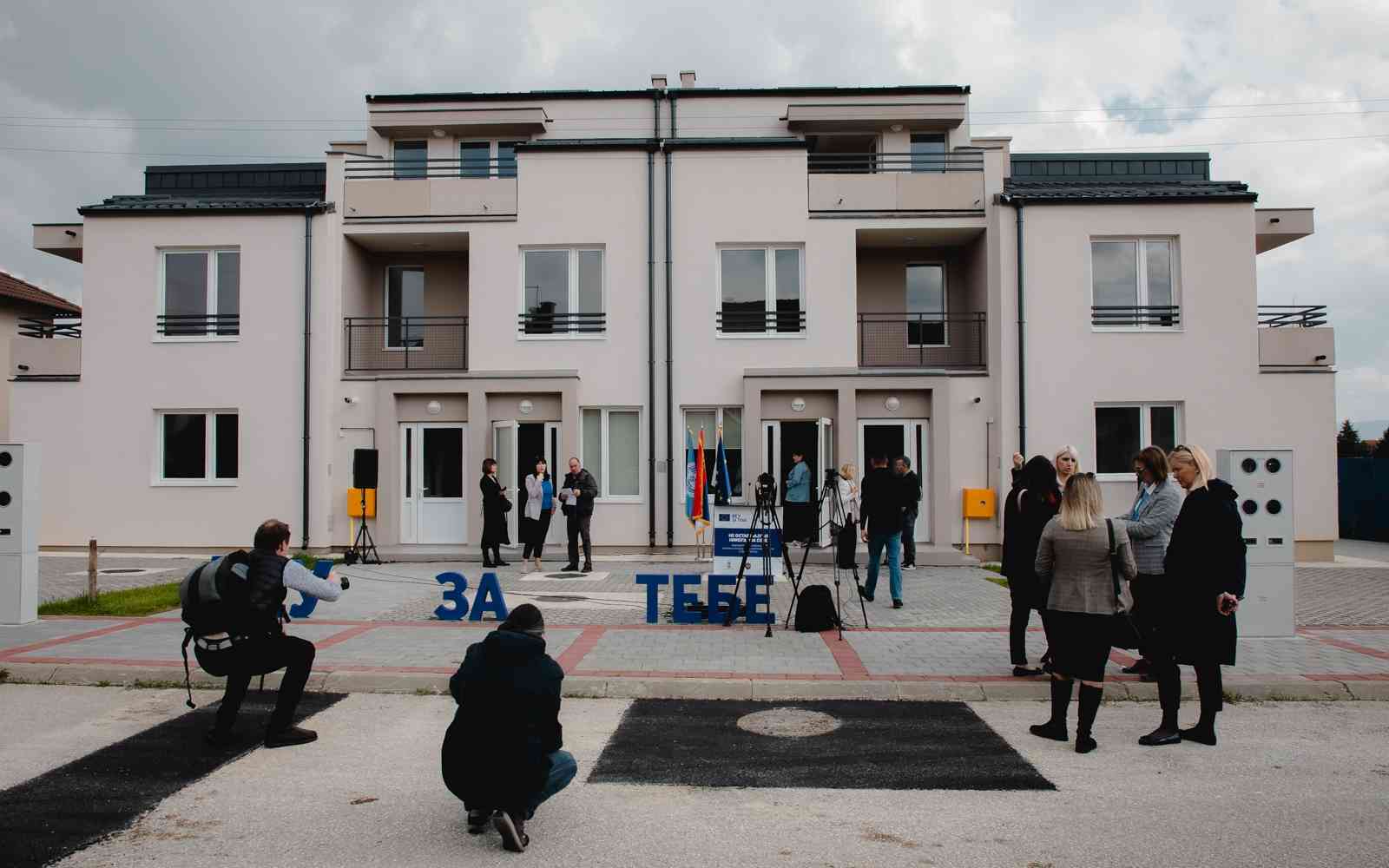The United Nations Office for Project Services (UNOPS)

European PROGRES: Laying the groundwork for Serbia’s sustainable development
For many people around the world, a lack of economic opportunities often means leaving not only one’s community, but one’s country to search for work. But not for Erkan Hadžić.
Erkan is one of 22 grant recipients of a European PROGRES initiative to support youth entrepreneurship in the southern part of Serbia. Last year, he started his own corrugated paper and cardboard production company.
“This whole process – receiving the equipment and establishing a business – has enabled me to stay in my own town and develop my own business,” said Erkan.
Across southern Serbia, the European PROGRES programme helped to build the foundation for the sustainable development of 34 of the most underserved local self-governments in the country.
The programme has improved the lives of more than 270,000 people, and indirectly benefitted nearly one million people – almost one-sixth of the Serbian population.





Dairy farm owner Milan Veličković is one of them. His family-run business in the small village of Alakince, located in southeastern Serbia, has been producing milk and other dairy products for two decades. Through the European PROGRES programme, Milan received equipment to help his business become more efficient.
“The new equipment allowed us to increase the volume of goods we transported, which helped to reduce the price of products and saved us money,” said Milan. “We then used the money we saved to create more jobs at the dairy.”
Over the course of three years, the programme has contributed to attracting more than 10 million Euros worth of investments in economic and social projects. It has also led to the creation of nearly 100 new businesses and more than 700 new jobs.
The path towards European integration
The European PROGRES programme helped Serbia increase infrastructure and economic development – both vital as the European Union candidate continues to work towards European integration.
“One of the main goals of European integration, in addition to the negotiation process, is balanced regional development,” said Jadranka Joksimović, Serbia’s Minister of European Integration.
“We believe that European PROGRES and predecessor programmes laid the foundation for new investments and development projects that can really help the Southeast and Southwest catch up with more developed parts of the country,” said Graeme Tyndall, UNOPS Serbia Manager.
"The purpose of European PROGRES was to facilitate a genuine societal change, meaning better governed, better regulated, more equal and more inclusive local communities,” said Ambassador Philippe Guex of Switzerland.
Supporting vulnerable groups
The programme also worked towards improving the social and economic standing of more than 9,000 people from vulnerable groups, including ethnic minorities such as the Roma, women and people with disabilities.
Roma participants received training that enhanced their employability or support for income generating activities, as well as improved living conditions in Roma homes. The programme also helped Roma children improve their knowledge of Serbian and mathematics, among other activities.
In partnership with UN Women, European PROGRES worked on strengthening the institutional framework for gender equality. Grants helped female participants gain enhanced knowledge of entrepreneurship, material for agricultural production or funds to start their own businesses.
“Employment of women and their introduction to the labour market is one of the priorities for the Government of the Republic of Serbia. That is why we’re active partners in all activities aimed at improving the social and economic position of women and gender equality,” said Jadranka Joksimović, Minister of European Integration.
To encourage the inclusion of people with disabilities into the labour market, grants were also used to help local organizations provide skills training.
“The funds enabled us to equip our workshop where people with disabilities can learn and, through work education, gain skills that will help them with employment,” said Zlatan Vukosavljević, the founder of the Association for Helping Persons with Special Needs in Raška Municipality. “They have the possibility to create something, to see the fruits of their labour.”




Project details
The European PROGRES programme aimed to strengthen local governance, planning and management capacities; increase the competitiveness of local economies; encourage social inclusion and improve access to employment; and communicate the effects of Serbia’s accession into the European Union. Funded by the European Union and the governments of Serbia and Switzerland, UNOPS implemented the programme in partnership with the Government of Serbia.
As part of our work with the European PROGRES programme, UNOPS personnel managed grants, rehabilitated schools, designed and constructed dams, and provided technical assistance, among other activities.













